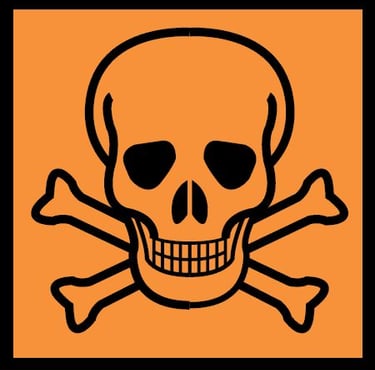Hidden Dangers in Your Shampoo: Harmful Ingredients to Avoid
Shampoo is a staple in most people's personal care routines, but have you ever taken a closer look at what’s inside your bottle? While the labels promise smooth, shiny hair, many commercial shampoos contain harmful chemicals that can affect not only your hair and scalp but also your overall health. Studies suggest that long-term exposure to some of these ingredients may lead to skin irritation, hormonal disruption, and even chronic health conditions. This article explores the most harmful shampoo ingredients you should avoid and what research says about them.


One of the most common offenders in shampoos is sulfates, particularly sodium lauryl sulfate (SLS) and sodium laureth sulfate (SLES). These are used to create the foamy lather we associate with cleanliness, but they also strip away natural oils from your scalp. According to dermatological studies cited by Healthline, sulfates can trigger dryness, irritation, and worsen existing conditions like eczema and dermatitis. Moreover, these chemicals often end up in wastewater, posing a threat to aquatic life.
Another major concern is the presence of formaldehyde and formaldehyde-releasing preservatives like DMDM hydantoin. These compounds are used to prevent microbial growth but are also classified as carcinogens. As Verywell Health notes, they can cause scalp burns, allergic reactions, and hair thinning over time. Long-term exposure has also been linked to respiratory issues and potential cancer risks.
Parabens—such as methylparaben, propylparaben, and butylparaben—are widely used as preservatives in shampoos. These are known endocrine disruptors, meaning they can mimic estrogen in the body. A study published in MDPI Applied Sciences highlighted their absorption into the bloodstream and presence in breast tissue, raising concerns about their role in hormone-related cancers. Moreover, a Taiwanese study linked paraben exposure to reduced attention in children, while a 2024 Spanish study associated high levels of hair propylparaben in boys with a 4.7-fold higher risk of obesity. These findings have prompted stricter regulation in Europe, where some parabens are banned and others limited to concentrations under 0.19%.
Phthalates are another ingredient to watch out for, especially those hidden behind the term "fragrance" on product labels. Used to enhance scent longevity, phthalates have been linked to liver damage, thyroid dysfunction, infertility, and developmental disorders. Healthline also reports that triclosan, an antibacterial agent sometimes still found in shampoos, is associated with hormone imbalance and environmental harm. Although banned from soaps, it remains under scrutiny in other personal care products.
Silicones, like dimethicone, are added for that silky, smooth feeling, but they can build up on the scalp and hair shaft, causing dryness and breakage over time. Combined with other harsh ingredients, this buildup can clog hair follicles, making it harder for your scalp to breathe and your hair to grow naturally.
What does research say about avoiding these chemicals? A U.S.-based teen cosmetic intervention study found that after just three days of using paraben- and phthalate-free products, participants showed significantly reduced levels of these chemicals in their urine. Another biomonitoring study found that switching to natural haircare halved the body’s burden of parabens and triclosan. Additionally, prenatal exposure to butylparaben has been linked to increased risk of childhood asthma.
To reduce exposure, experts recommend checking shampoo labels carefully. Avoid ingredients like sulfates (SLS, SLES), parabens (methyl-, propyl-, butyl-), phthalates (often hidden in "fragrance"), formaldehyde releasers, triclosan, and silicones. Instead, opt for sulfate-free, paraben-free, and fragrance-free alternatives made with natural ingredients like coconut-derived cleansers and plant oils. Patch-testing new products is also essential if you have a sensitive scalp.
In conclusion, your shampoo might be doing more harm than good. While no single wash will cause major damage, prolonged exposure to harmful ingredients—especially endocrine disruptors—can accumulate in the body and environment. By becoming an informed consumer and choosing safer, more transparent brands, you can protect your hair, your health, and the planet.

